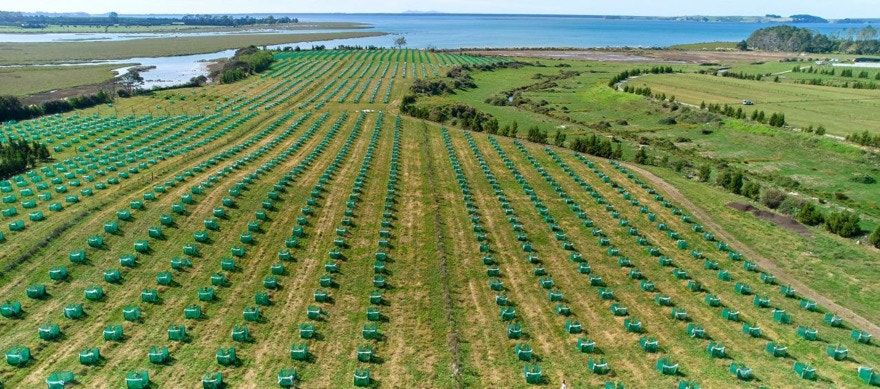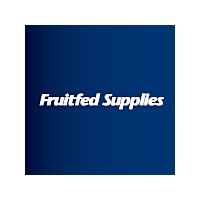
Katikati orchardist expands organic business
Katikati Orchardist Adam Alexander had plans to train as a secondary school teacher when two things happened.
“Our grandmother purchased this land on a peninsula near Aongatete about 30 years ago,” Adam explains. “My parents worked it, then leased it out as a dry stock unit. About seven years ago, we had a family discussion. A dry stock farm is fine to support one family but with four kids all starting to have kids of our own, we were looking for better returns.”
At the time, Adam was finishing a Bachelor of Science at Otago University, with his goal still to head to teachers’ college. “We considered all kinds of options, from dairy goats and niche crops to kiwifruit and avocados. My sisters and I were all raised off the farm, so had no background ourselves. In the end, we decided to develop an 11 ha Hayward orchard. The area around us is completely geared up for kiwifruit with merchants, packhouses and contractors.”
With six months before teachers’ college started, Adam saw an advertisement for a role with Ballance Agri-Nutrients. “I applied for and secured the role which I enjoyed immensely and the idea of going teaching appealed less and less. But the job kept me away from Tauranga, family and the lifestyle, so when a role with a smaller fertiliser company came up in the Bay, I grabbed it.”
One year into the orchard establishment process, being done by contractors, the family trustees felt things weren’t being managed as well as they wanted.
“They looked at me and said you’ll be able to do it,” Adam says with a laugh. “I said I’ll give it a go, but I know nothing about horticulture, only a bit about nutrients and soil. So that was the second thing, literally from one day to the next, I was in the orchard doing vine work, spraying and employing small teams of staff. You look back and so many things were done wrong and, by chance, so many things were done right. Connections were made and the learning commenced at speed.”
Six years on, the original orchard is cropping in line with timing expectations but on the lower side in terms of yield. The Cryptomeria shelterbelts are now tall enough to help protect the kiwifruit on this windy site by the sea, finally setting the orchard up for a yield of around 9000 trays per ha this year. Adam has converted the orchard to organics while doubling production every year. He’s employed and trained local staff, and contracted on other orchards. Now, he is partway through developing more of the family farm for horticulture, he’s stepped away from contracting for the time being.
“We’re focused on doing our own orchard development as well as we can right now. This year we’ve rammed a further 7.2 ha of Hayward, planted 8 ha of avocados, predominantly Hass and two blocks of Gem. We’ll do another hectare of avocados next season. We’ve also put in 2.7 ha of kiwiberries which I’m excited about and we’re considering what to do with another four hectares, possibly a pollen orchard. Diversification into these other crops is part of being able to keep more staff employed all year-round.”
Organics have played an important part of Adam’s journey to this point. “I started out as conventional as they come with my background in fertilisers and nutrients, but each year conventional products would drop out as we found more natural options. In time everything we used was organic. We don’t apply any budbreakers and instead employ other management processes such as tipping.”
Adam continues to look for alternatives to help manage Psa, scale and leafroller. “We still want the production levels achieved by most conventional orchardists, but our journey to get there is different. I’d like to use very little or no copper to combat Psa. I’m working on a competition-based model instead. We don’t talk much about the biome of the leaf surface, so how do we increase beneficial bacteria to compete against Psa on the leaf surface? Copper wipes out those beneficials.”
Finding answers to Adam’s quest for new ways to combat pests and disease is where his Fruitfed Supplies Technical Horticultural Representative Alastair Reed comes in.
Conventional growers are all around us and this offers an important perspective for me as I know conventional growing does work. It allows me to test my ideas on how to achieve the same result using an organic approach.
“Alastair has a huge amount of integrity. He’ll talk with the Fruitfed Supplies Technical team, leveraging the huge resource of knowledge and experience at our local branches to come back with some amazing answers to help solve my problems. We can get on top of scale if I spray oil frequently and leafroller with Bacillus thuringiensis (Bt) products every 14 days, but that’s not what I want to do. Alastair and I can discuss and come up with new ideas that suit this property. Where we farm is different to people up the road 30 metres above sea level, so it’s about learning what works on your site and in your climatic conditions.”
